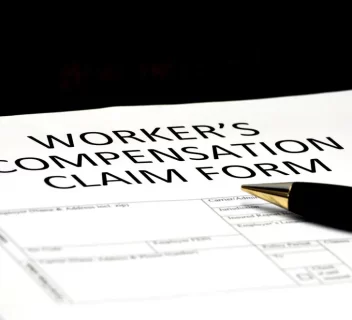Will My Employer Settle Out of Court? What You Need to Know
If you’re considering a labor law claim against your employer, you might be wondering: Will my employer settle out of court? This is one of the most common questions plaintiffs have when facing workplace disputes.
The answer is often yes—but it depends on the specifics of your case. Understanding the legal dynamics behind settlements can help you prepare, plan, and position yourself for a favorable outcome.
In fact, most employment cases are resolved through an out of court settlement, as most employers prefer to settle privately to save costs, avoid risks, and reach a mutually acceptable resolution.
In this guide, we’ll explore why settlements are so common in labor law disputes, what influences settlement outcomes, and what to do if your employer refuses to settle.
In employment cases, most employers opt for an out of court settlement to avoid the expenses and uncertainty of litigation.
If you’ve been wronged in the workplace, learning how the settlement process works could give you a serious advantage.
Employment Disputes
Employment disputes can arise for many reasons, from wrongful termination and workplace discrimination to breaches of contract or unfair treatment.
These conflicts can be stressful and expensive for both employers and employees, often involving complex aspects of employment law.
Navigating these challenges on your own can be overwhelming, which is why consulting an experienced employment lawyer is so important.
Settlement agreements are a common way to resolve employment disputes without going to court. These agreements can address critical issues such as lost wages, emotional distress, and attorney fees, providing a fair settlement for both parties.
Employment attorneys play a key role in negotiating these agreements, ensuring that your rights are protected and that the terms are clear and enforceable.
f you’re an employee who believes your rights have been violated, it’s important to understand your legal options.
Why Do Most Labor Law Conflicts End in a Settlement?

In the vast majority of labor disputes, employers and employees reach a settlement without ever stepping into a courtroom.
So why does this happen? Many claims settle due to several factors, including the desire to avoid lengthy litigation, and settlement negotiations are a key part of resolving these disputes efficiently.
1. Litigation is Expensive
Lawsuits cost a lot of time and money. Legal costs, including attorney fees, court fees, and other expenses such as discovery costs and expert witness fees, can add up quickly in litigation. Employers often pay high attorney fees and risk even greater expenses if they lose at trial.
2. Trials Are Public
Unlike private settlements, trials are a matter of public record. This exposure can be damaging to a company’s reputation. For this reason, many companies would rather avoid bad press and settle quickly.
3. Control Over the Outcome
Trials are unpredictable. Settling out of court gives both parties more control over the resolution, rather than leaving the decision up to a judge or jury.
4. Employee Leverage
Because employers want to avoid costly and public trials, plaintiffs often have leverage. A well-prepared employee with a strong case can push for a favorable and early resolution.
When the stakes are high and the case is strong, the question becomes less will my employer settle out of court? and more when and how much will they settle for?
Employers may offer more money in settlement to avoid the risks and expenses of going to trial.
What Factors Affect a Settlement?
When asking will my employer settle out of court, it’s important to consider the different elements that can impact the likelihood, timing, and amount of a potential settlement.
The settlement amount and settlement amounts can vary depending on the specifics of each case, such as the evidence presented, damages claimed, and the conduct of the parties involved. Here are the key factors:
1. Strength of the Evidence
If you have clear documentation, credible witnesses, or strong legal arguments, the employer may be more inclined to settle.
2. Severity of Harm or Damages
The more severe the impact on you—whether financially, emotionally, or physically, including financial losses and lost benefits—the higher the potential settlement value. Employers might offer more to avoid a large verdict.
3. Negative Publicity Risk
If your claim involves discrimination, harassment, or wrongful termination, there is a risk of reputational damage for the employer.
The employer’s actions and employer’s behavior in the case can significantly impact the likelihood of settlement. To avoid headlines and social media backlash, companies often opt to resolve the matter quietly.
4. Likelihood of Winning at Trial
The more likely you are to win in court, the more your employer might want to avoid that outcome. A clear-cut case often leads to early settlement offers.
5. Company Resources
Larger companies may have more to lose in a trial but also more to spend on dragging out litigation. Smaller businesses may prefer a quicker settlement due to limited resources.
6. Internal Company Culture
Some employers are more litigation-averse than others. If your employer has a track record of settling similar disputes, chances are they’ll do the same here.
Understanding these factors can give you insight into the probability of settlement and help answer the question, will my employer settle out of court?
Understanding Discrimination Laws
Discrimination laws are designed to protect employees from unfair treatment in the workplace based on characteristics such as race, gender, age, disability, religion, sexual orientation, and national origin.
The Equal Employment Opportunity Commission (EEOC) is the federal agency responsible for enforcing these laws and ensuring that employers comply with anti-discrimination regulations.
Employers who fail to follow discrimination laws risk facing costly settlements and legal action. Employment attorneys can help both employers and employees understand their rights and responsibilities under these laws.
For employers, working with attorneys to develop strong anti-discrimination policies and training programs can help prevent workplace discrimination and reduce the risk of lawsuits.
For employees, knowing your rights under federal and state discrimination laws is the first step in taking action if you believe you’ve been treated unfairly.
Whether you’re seeking to resolve a dispute or prevent one, understanding the protections offered by discrimination laws is crucial for everyone in the workplace.
What Happens If Your Employer Doesn’t Want to Settle?
While many cases settle early, not all do. So what are your options if your employer refuses to settle?
If settlement fails, your case may proceed to summary judgment or a full employment lawsuit, which can involve additional legal steps and costs.
1. Continue With Litigation
If no settlement is reached, your lawyer will move forward with discovery, depositions, and possibly a trial.
During depositions, a court reporter will transcribe the spoken testimony under oath to create an official record. This path is more time-consuming but may be necessary to obtain justice.
2. Apply Pressure With Evidence
Your legal team may reveal damaging facts during the discovery phase, prompting the employer to reconsider their stance.
3. Revisit Settlement Later
Even if initial offers are low or non-existent, many cases settle just before trial. Keep building your case and remain open to negotiation.
4. Prepare for Trial
If settlement talks are unsuccessful, your attorney can guide you through the next legal steps. In these instances, your lawyer will prepare to present your case in court.
This situation underscores the importance of working with a seasoned attorney who can adapt your legal strategy as your case evolves.
Discrimination Case Strategies

Successfully handling a discrimination case requires a strategic approach and clear evidence. Employment attorneys can guide employees through the process of gathering documentation, such as emails, performance reviews, and witness statements, to support their claims.
Building a strong case under discrimination laws increases the likelihood of reaching a fair settlement agreement.
Settlement discussions in discrimination cases often involve mediation, where both parties can negotiate terms outside of court. Many employers prefer to settle out of court to avoid the unpredictable nature of a jury trial and the potential for higher compensatory or punitive damages.
A well-negotiated settlement agreement should address all relevant issues, including compensatory damages for lost wages or emotional distress, punitive damages in cases of egregious conduct, and attorney fees. By working with experienced employment attorneys, employees can ensure that their interests are protected and that any settlement reached is truly fair.
What Are Some Important Labor Law Considerations to Keep in Mind When Considering a Lawsuit?
These are cases involving various employment claims that arise in the workplace.
If you’re thinking about taking legal action, here are key labor law issues to focus on:
- Discrimination Claims: Discrimination based on protected characteristics such as race, gender, age, disability, religion, or sexual orientation, including failure to provide reasonable accommodations for employees with disabilities
- Wrongful Termination: Being fired for an unlawful reason, such as in violation of an employment agreement or without legal cause
- Retaliation: Punishment for whistleblowing, filing complaints, reporting discrimination, or taking legal leave
- Harassment: Especially cases involving sexual harassment or a hostile work environment
- Wage and Hour Violations: Including unpaid overtime or denial of meal/rest breaks
- Leave Violations: Violations of rights under the FMLA or state equivalents
Federal law protects a former employee who files an employment claim against their former employer, ensuring legal recourse for workplace violations.
Having well-organized evidence—like emails, performance reviews, and witness accounts—will strengthen your position, increase the value of your claim, and influence whether your employer will settle out of court.
Mitigating Costs and Risks
Employers can significantly reduce the costs and risks associated with employment lawsuits by involving an employment lawyer early in the dispute resolution process.
Early intervention allows for a thorough assessment of the situation and can lead to a quicker, more cost-effective resolution, often through settling out of court. This approach helps avoid the high expenses and uncertainty of a full trial.
Another important step for employers is to consider Employment Practices Liability Insurance (EPLI), which provides financial protection against claims alleging violations of employees’ legal rights.
While EPLI can cover legal fees and settlements, it’s important to be aware of premiums and deductibles. Choosing employment attorneys with a proven track record in handling employment claims can also make a significant difference, helping employers navigate complex legal issues and achieve better outcomes for both sides.
What Sort of Compensation Could I Be Entitled To in a Labor Law Dispute?
If you win or settle your labor law claim, you may be entitled to various forms of compensation. Settlement amounts can vary significantly depending on the facts of the case, including evidence, damages, and state laws.
- Back Pay
- Front Pay
- Emotional Distress Damages
- Punitive Damages
- Attorney Fees
- Non-cash benefits (such as reinstatement, positive references, or changes to company policy)
A settlement offer from your employer may include a non-disclosure agreement, which restricts you from discussing the details of your case.
The legal work performed by your attorney—such as negotiating, preparing documents, and representing you in mediation or court—is essential to help you pursue compensation when appropriate.
1. Back Pay
This includes any lost wages or benefits you would have earned if the wrongful act had not occurred.
2. Front Pay
If returning to your job isn’t possible, you may be entitled to compensation for future lost wages.
3. Emotional Distress Damages
Many labor law violations, such as harassment or discrimination, lead to psychological harm. These damages can be included in a settlement.
4. Punitive Damages
In extreme cases of malicious or reckless conduct, punitive damages may be awarded to punish the employer.
5. Attorney Fees
In many labor law cases, the employer may be required to cover your legal fees if you win.
The possibility of these costs can influence how will my employer settle out of court, especially when the evidence is strong.
How Much Does a Labor Lawyer Cost to Hire?
Worried about paying for legal help? Don’t be. Most labor lawyers work on a contingency fee basis, which means:
- You don’t pay upfront fees
- The lawyer only gets paid if you win or settle
- The fee is typically a percentage of the settlement (usually 25% to 40%). The attorney receives this percentage as their payment.
Some attorneys may also offer services on an hourly basis, depending on the case.
This arrangement benefits employees who might not otherwise afford legal representation. It also aligns your lawyer’s interests with yours—they have a strong incentive to win your case or support you in seeking a fair resolution based on your circumstances.
So when asking will my employer settle out of court, know that you can have high-quality legal support without financial risk upfront.
Conclusion
In conclusion, employment disputes can present significant challenges for both employers and employees. Understanding employment law, discrimination laws, and the details of settlement agreements is essential for effectively resolving these conflicts.
Employment attorneys are valuable allies, offering guidance on legal rights and helping to negotiate fair settlement agreements that address the needs of all parties involved.
By taking proactive steps to mitigate costs and risks, employers can minimize the financial impact of employment lawsuits and ensure compliance with federal and state laws.
Employees, on the other hand, should seek the advice of an experienced employment lawyer to fully understand their legal rights and explore all available options for resolving workplace disputes.
Whether you are seeking justice for discrimination or looking to settle a claim efficiently, the right legal support can make all the difference.
Contact 1-800-THE-LAW2 for a Free Consultation
If you believe your employer violated your labor rights, it’s time to take action. Understanding your legal options can make the difference between ongoing hardship and meaningful justice.
Whether you’re dealing with discrimination, unpaid wages, harassment, or retaliation, the question will my employer settle out of court is one worth exploring with legal professionals who have experience in labor disputes.
Contact 1-800-THE-LAW2 today for a free consultation. An experienced attorney in our network can review your case, help you understand your rights, and explore potential legal strategies.
You don’t have to face this alone. Call now to learn how we can help and to better understand how will my employer settle out of court in your specific situation.




